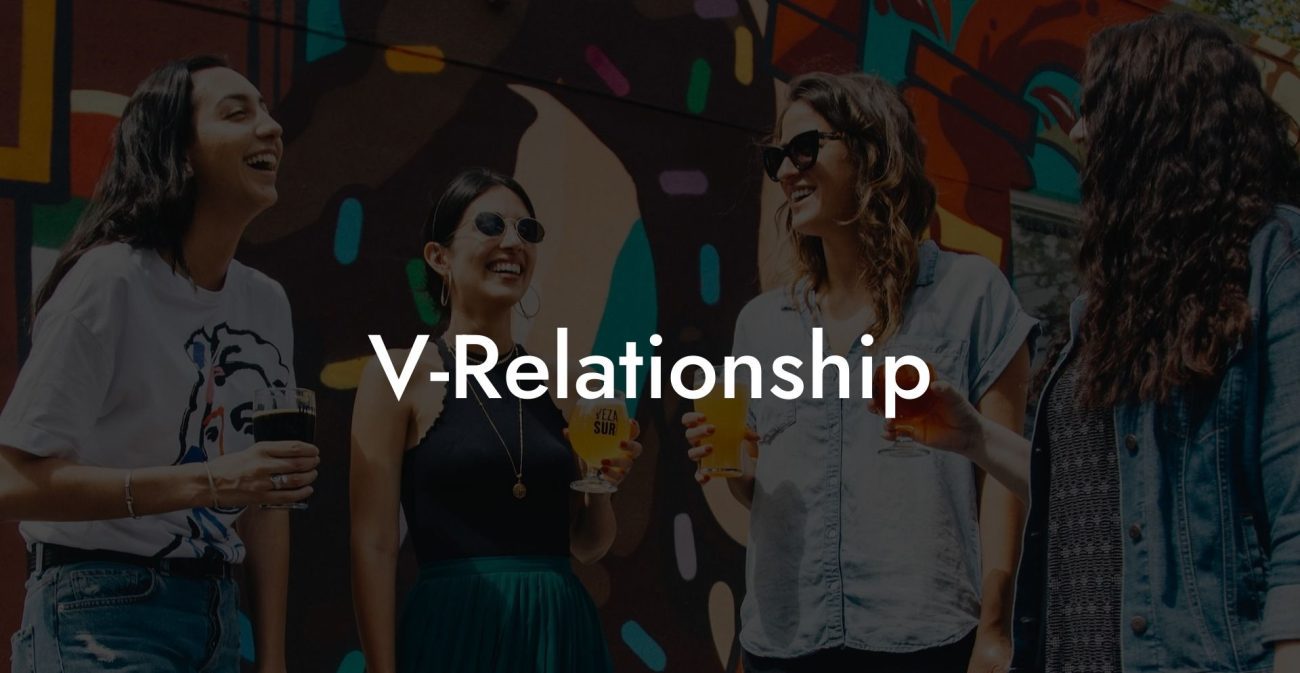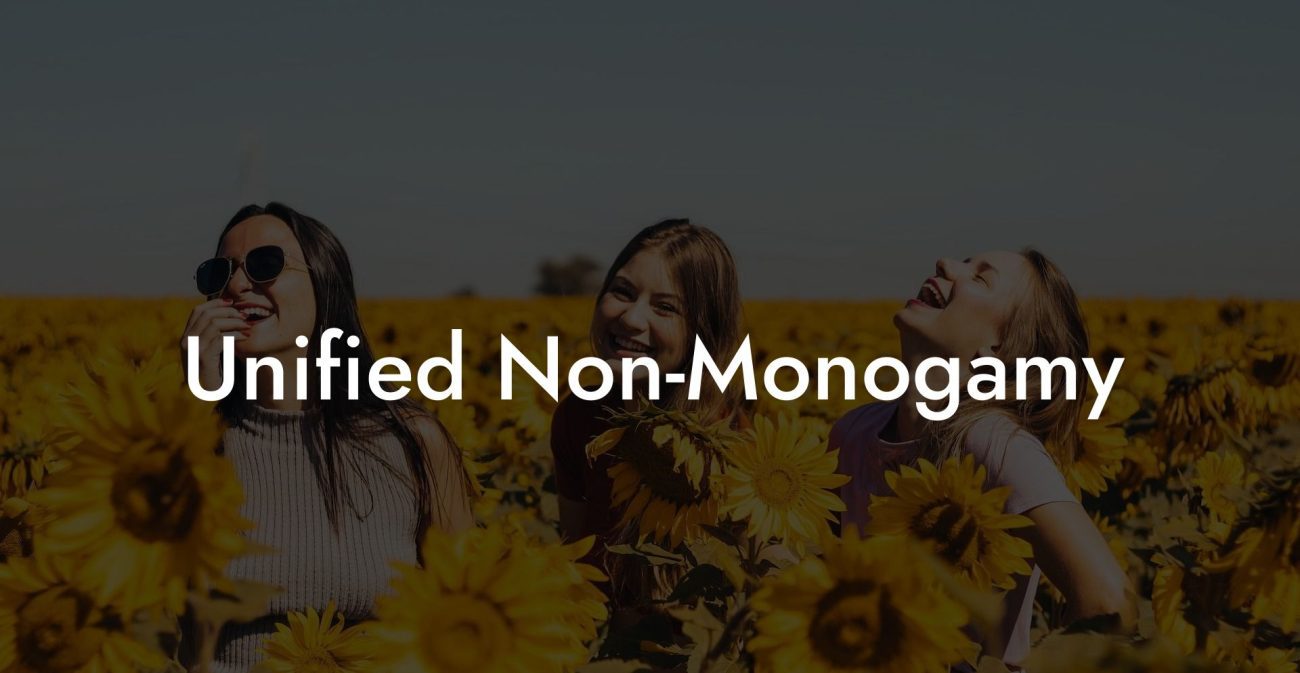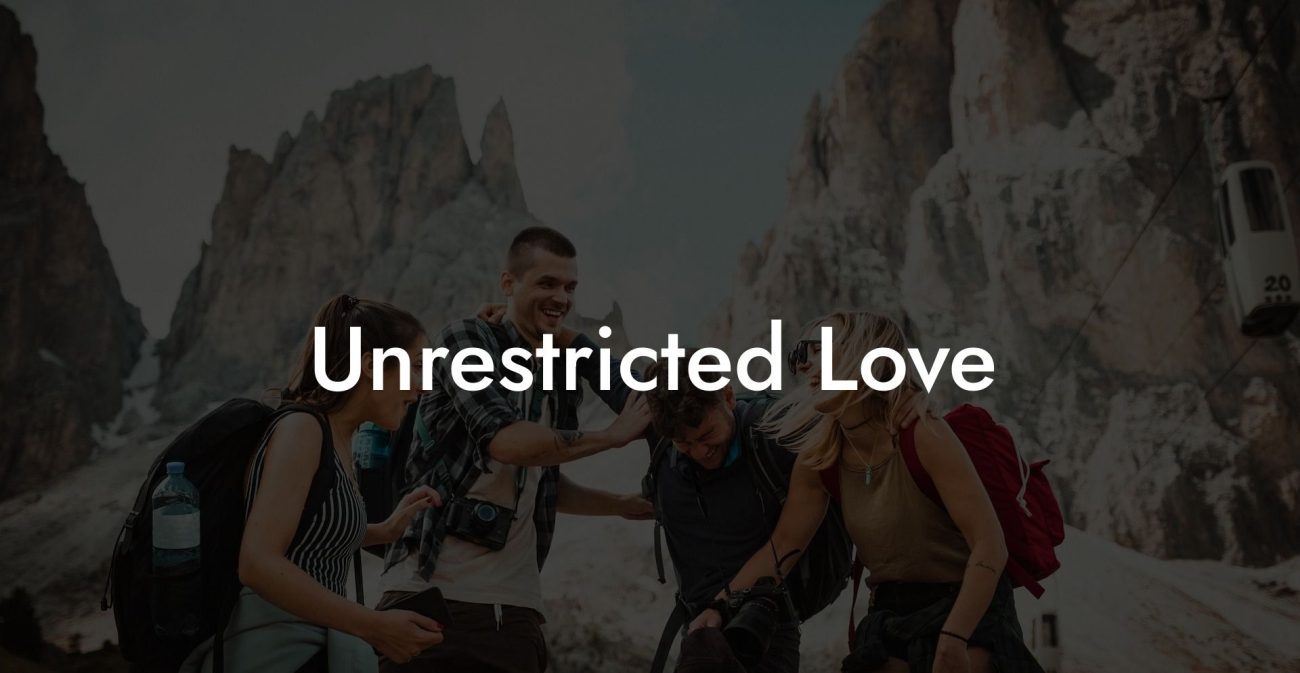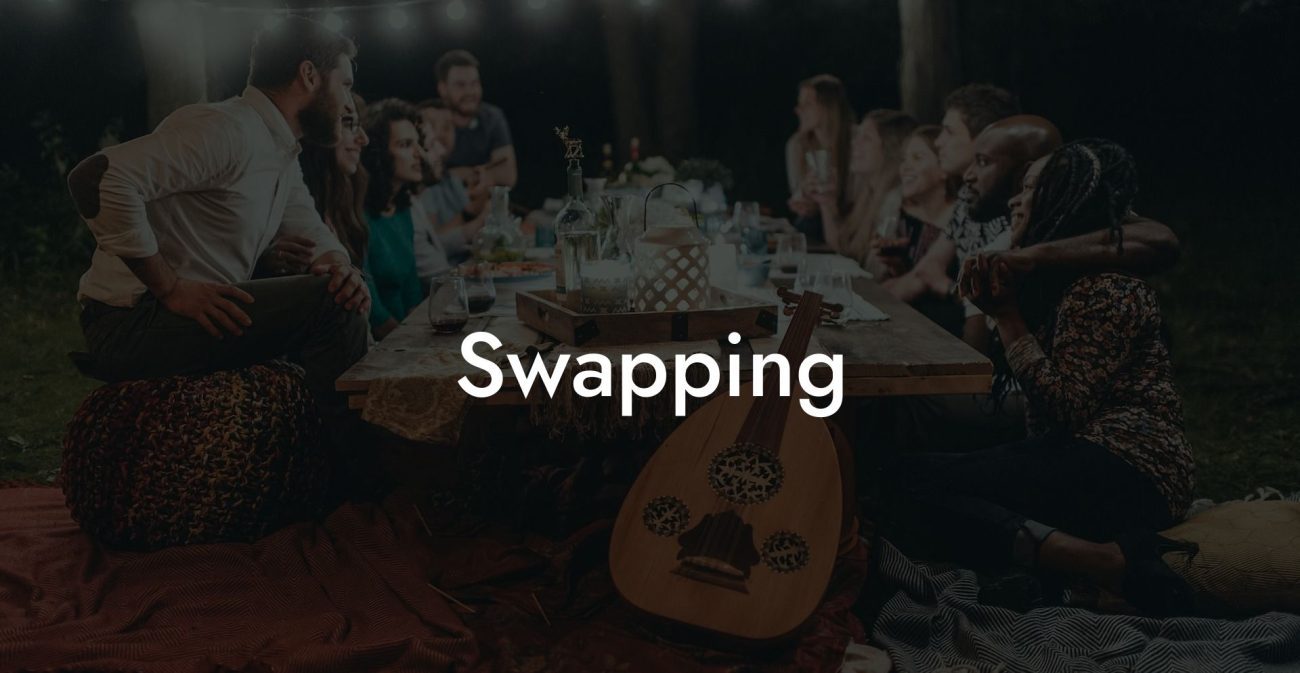Evolving Relationships
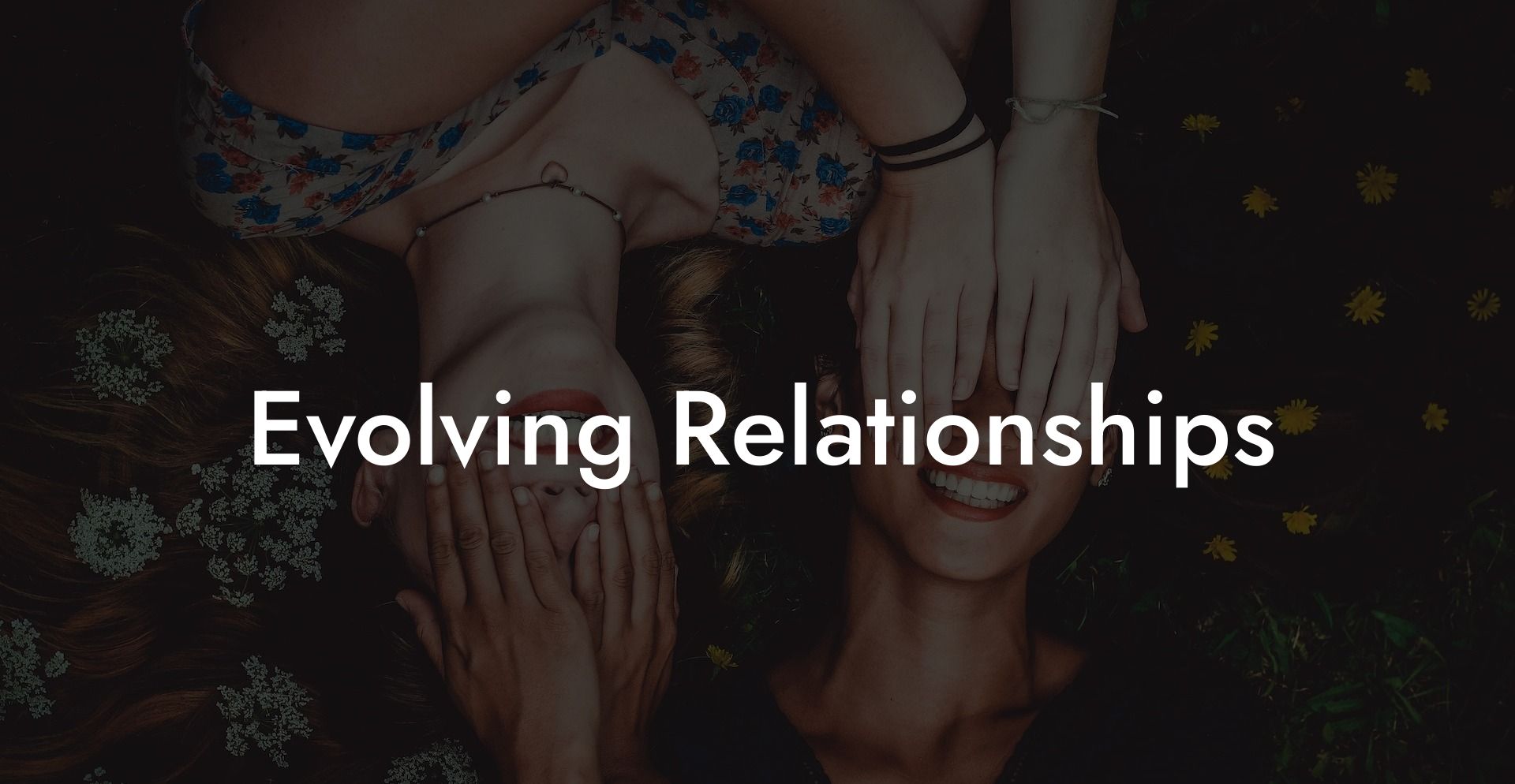
Ever feel like your relationships are not a static snapshot, but more like an evolving, kaleidoscopic journey where every twist and turn brings a new pattern of connection? In the world of ethical non monogamy, evolving relationships capture that very essence – they’re fluid, dynamic, and ever-changing, much like the seasons. Imagine if your love life was a living art piece, constantly shifting with every brushstroke of experience, personal growth, and mutual understanding. Get ready to dive into the concept of evolving relationships, a term that celebrates the natural progression and transformation of bonds over time.
Have you ever wondered if monogamy is just a stupid little experiment? Open relationships, polyamory, relationship anarchy...find out which relationship dynamic suits you best with our one minute relationship test. See if you are just conforming to "societal norms". Reveal your truth >>
Quick Links to Useful Sections
- The Ethical Non Monogamy Term: Evolving Relationships
- What Are Evolving Relationships?
- Core Principles of Evolving Relationships
- Historical and Cultural Perspectives on Evolving Relationships
- From Fixed Traditions to Fluid Connections
- Cultural Shifts in Modern Love
- Everyday Dynamics of Evolving Relationships
- Living a Relationship That Grows With You
- Integrating New Experiences
- Renegotiating Boundaries
- Benefits of Embracing Evolving Relationships
- Deepened Emotional Connections
- Personal and Collective Growth
- Improved Communication and Conflict Resolution
- Flexibility and Resilience
- Challenges of Evolving Relationships
- Managing Uncertainty
- Balancing Stability with Change
- Overcoming Fear of Vulnerability
- Navigating External Pressures
- Frequently Asked Questions (FAQ)
- Resources and Community Support: Your Next Steps
The Ethical Non Monogamy Term: Evolving Relationships
What Are Evolving Relationships?
Evolving relationships are those that grow and transform over time rather than remaining fixed in a single state. In ethical non monogamy, these relationships are characterized by their fluidity—partners continually renegotiate boundaries, explore new dimensions of connection, and adapt to personal and collective changes. It’s the idea that love isn’t a one-size-fits-all garment but a tailored suit that can be remade as life’s circumstances change.
In this model, each relationship is seen as a living, breathing entity that adapts to the needs, desires, and growth of those involved. Whether you’re exploring multiple connections simultaneously or evolving within one long-term bond, the emphasis is on being present and responsive to change.
Core Principles of Evolving Relationships
- Fluidity: Embracing that relationships change over time—what feels passionate today might become a steady, nurturing presence tomorrow.
- Adaptability: Being open to revisiting and renegotiating boundaries, roles, and expectations as individuals grow and circumstances shift.
- Intentional Growth: Recognizing that every interaction is an opportunity for personal and collective development.
- Open Communication: Continuous dialogue is crucial for understanding evolving needs and ensuring that all partners remain in sync.
- Mutual Empowerment: Encouraging each partner to flourish individually while contributing to the collective well-being of the relationship network.
Historical and Cultural Perspectives on Evolving Relationships
From Fixed Traditions to Fluid Connections
Traditional relationship models have often been built on the notion of permanence and exclusivity—think of a classic marriage contract that is meant to last a lifetime without change. However, as society has evolved, so too have our ideas about what relationships can be. The concept of evolving relationships emerged from a desire to break free from rigid expectations and to allow love to be as dynamic as life itself.
Historical shifts such as the sexual revolution of the 1960s and the rise of feminist and LGBTQ+ movements challenged conventional views on romance and commitment. These cultural revolutions paved the way for new models of connection that emphasize personal growth, open dialogue, and continuous adaptation. In ethical non monogamy, evolving relationships embody these values, offering a framework where each bond is not static but a process of constant renewal.
Cultural Shifts in Modern Love
In today’s fast-paced, digitally connected world, our understanding of love is continuously being rewritten. Millennials and Gen-Z, in particular, reject the notion that love should be confined to a single, unchanging paradigm. Instead, they embrace relationships that are fluid and adaptable—where emotional intensity and commitment can shift over time.
Social media, online communities, and the widespread availability of relationship resources have all contributed to a growing acceptance of evolving relationships. Modern love is celebrated as an ongoing journey rather than a destination, with each phase of a relationship offering unique opportunities for exploration, challenge, and joy.
Everyday Dynamics of Evolving Relationships
Living a Relationship That Grows With You
Imagine your relationship as a favorite playlist that gets updated with new tracks as your tastes evolve. One day, you might experience a burst of passionate excitement; another day, your connection might settle into a comfortable, supportive rhythm. Evolving relationships are about allowing those changes to happen naturally, without forcing a static version of what “love” should look like.
In practical terms, this means that partners in evolving relationships often engage in regular check-ins to discuss their current needs, share personal growth updates, and adjust boundaries as necessary. These check-ins might be as informal as a heart-to-heart during a walk or as structured as a monthly “relationship review.” The goal is to ensure that everyone’s voice is heard and that the relationship adapts to accommodate new experiences, desires, and challenges.
Integrating New Experiences
One of the beauties of evolving relationships is the emphasis on shared experiences. Whether it’s trying a new hobby, traveling to a new destination, or simply exploring new aspects of your emotional landscape, every new experience adds a layer of depth to your connection.
These experiences not only help keep the relationship fresh but also provide opportunities to learn more about yourself and your partner(s). The continuous influx of novel experiences encourages a dynamic exchange of energy and helps prevent the stagnation that can sometimes plague long-term relationships.
Renegotiating Boundaries
As relationships evolve, so do personal boundaries. What was acceptable at the beginning of your relationship might need to be adjusted as circumstances change. Regular renegotiation of boundaries is a hallmark of evolving relationships. It ensures that every partner’s needs are met and that the relationship remains a safe and supportive space for growth.
This process involves honest, sometimes difficult conversations where all parties agree to update their expectations. Though it can be challenging, this renegotiation is also a powerful opportunity for reaffirming commitment and deepening trust.
Benefits of Embracing Evolving Relationships
Deepened Emotional Connections
When you allow your relationships to evolve naturally, you create space for deeper emotional connections. Every change, every challenge, and every new experience adds to the richness of your bond. Over time, this leads to relationships that are not only resilient but also deeply fulfilling.
- Layered Intimacy: Continuous evolution leads to a multi-dimensional connection where every phase contributes to the overall depth of the relationship.
- Enhanced Trust: Regularly revisiting and renegotiating boundaries reinforces trust and ensures that everyone’s needs are met.
Personal and Collective Growth
Evolving relationships provide ample opportunities for personal growth. As you adapt to new experiences and challenges, you learn more about yourself and how you connect with others. This growth not only enriches your individual life but also strengthens the collective network.
- Self-Awareness: Regular self-reflection and honest dialogue help you understand your evolving needs and desires.
- Mutual Empowerment: As each partner grows, the entire relationship network becomes more resilient and supportive.
Improved Communication and Conflict Resolution
Evolving relationships require open, ongoing communication, which naturally improves your ability to resolve conflicts. By discussing changes in your needs and expectations regularly, you create a culture of transparency that minimizes misunderstandings and fosters healthy conflict resolution.
- Regular Check-Ins: Scheduled discussions help preempt potential issues before they become major conflicts.
- Active Listening: Honing your listening skills contributes to a more empathetic and understanding relationship dynamic.
Flexibility and Resilience
One of the greatest strengths of evolving relationships is their inherent flexibility. This adaptability allows your relationships to withstand life’s unpredictable changes. Whether it’s a shift in career, personal growth, or unexpected life events, flexible relationships can adapt without losing their core essence.
- Adaptive Boundaries: The willingness to renegotiate boundaries keeps your relationships relevant and aligned with your current needs.
- Resilient Support Network: A flexible relationship network is better equipped to handle stress and adversity, providing a stable base during turbulent times.
Challenges of Evolving Relationships
Managing Uncertainty
With constant change comes uncertainty. Not knowing exactly how your relationships will evolve can be unsettling, and it may sometimes lead to anxiety or a sense of instability.
- Tip: Embrace uncertainty as a natural part of growth and focus on the positive aspects of change.
- Tip: Regularly check in with yourself and your partners to ensure everyone feels secure amidst the changes.
Balancing Stability with Change
One of the trickiest challenges is striking the right balance between maintaining a stable core and allowing for continuous evolution. If the changes are too rapid, they can destabilize the relationship; if they’re too slow, the connection might stagnate.
- Tip: Establish a routine for regular check-ins and boundary reviews to help manage the pace of change.
- Tip: Be patient with yourself and your partners, and allow the relationship to evolve at a comfortable pace.
Overcoming Fear of Vulnerability
Opening up to change requires a level of vulnerability that can be intimidating. The fear of exposing your true self or of losing the connection can sometimes hold you back.
- Tip: Start with small acts of vulnerability and gradually build up to deeper, more meaningful disclosures.
- Tip: Practice self-compassion and remind yourself that vulnerability is a strength that leads to greater intimacy and trust.
Navigating External Pressures
Society often promotes the idea of an unchanging, idealized love, which can conflict with the reality of evolving relationships. This external pressure can sometimes lead to self-doubt or frustration.
- Tip: Build a strong internal narrative that celebrates growth and change, independent of societal expectations.
- Tip: Surround yourself with supportive communities that embrace the fluidity of modern relationships.
Frequently Asked Questions (FAQ)
1. What are evolving relationships in ethical non monogamy?
Evolving relationships are those that continuously grow and change over time, adapting to the personal development and shifting needs of all involved. They are characterized by fluid boundaries, open communication, and a commitment to mutual growth.
2. How do evolving relationships differ from traditional relationships?
Traditional relationships are often seen as fixed or static, while evolving relationships embrace change and adaptation. In evolving relationships, partners regularly renegotiate boundaries and expectations to match their current needs.
3. What are the core principles of evolving relationships?
The core principles include fluidity, adaptability, intentional growth, open communication, and mutual empowerment. These principles allow relationships to transform naturally over time.
4. How can evolving relationships enhance emotional intimacy?
By embracing change and continuous self-reflection, evolving relationships foster deeper emotional connections. Regular check-ins and open dialogues help partners understand each other’s evolving needs, leading to stronger bonds.
5. What benefits do evolving relationships offer?
Benefits include deepened emotional connections, personal and collective growth, improved communication, enhanced resilience, and a flexible support network that adapts to life’s changes.
6. What challenges might arise in evolving relationships?
Challenges include managing uncertainty, balancing stability with change, overcoming a fear of vulnerability, and navigating external pressures or societal expectations.
7. How important is communication in evolving relationships?
Communication is critical. Regular, honest discussions allow partners to renegotiate boundaries, address uncertainties, and maintain a strong, adaptable connection.
8. Can evolving relationships be applied to both monogamous and non monogamous setups?
Yes, evolving relationships focus on the natural progression of emotional bonds and can be embraced in any relationship model that values growth, adaptation, and continuous improvement.
9. What strategies help balance stability with change?
Regular check-ins, adaptive boundary-setting, and a commitment to self-care can help maintain a stable core while allowing relationships to evolve naturally.
10. How do I overcome the fear of vulnerability in evolving relationships?
Start with small, manageable acts of vulnerability and gradually build trust through open dialogue and self-compassion. Professional counseling can also provide guidance on navigating these emotions.
11. How do shared experiences contribute to evolving relationships?
Shared experiences, such as trying new activities together or embarking on adventures, add new layers to your connection and help relationships grow and adapt over time.
12. Where can I find additional resources on evolving relationships?
Additional resources include books like The Ethical Slut by Dossie Easton & Janet Hardy, podcasts such as Multiamory, and online communities like r/polyamory that focus on ethical non monogamy and mindful relationship practices.
Resources and Community Support: Your Next Steps
- The Ethical Slut by Dossie Easton & Janet Hardy – A seminal work that explores ethical non monogamy and offers insights into the evolving nature of modern relationships.
- Podcasts: Listen to Multiamory and similar shows for personal stories, expert advice, and practical strategies on nurturing evolving relationships.
- Online Communities: Engage with forums like r/polyamory to share experiences, ask questions, and connect with others who value continuous growth in their relationships.
- Workshops and Webinars: Attend events on relationship psychology and ethical non monogamy to deepen your understanding and build a supportive network.
- Therapy and Counseling: Consider professional guidance to help navigate the complexities of evolving relationships and ensure that your bonds remain strong and adaptive.
By exploring these resources and implementing the practical strategies outlined in this guide, you can develop a deep, informed understanding of evolving relationships. Embrace change, celebrate growth, and nurture connections that adapt and flourish over time. With mindfulness, open communication, and a commitment to mutual empowerment, your relationships can transform into a vibrant, ever-changing tapestry that reflects the true, dynamic nature of love.
Lost & confused by all of the terms, types and seemingly made up 3 letter acronyms?? We've got you. Check out our Ethnical Non-Monogamy Dictionary >>
Useful Interruption: Not sure which relationship vibe fits you best? Take our Relationship Test, it’ll give you the real insight into your natural relationship style. Then, dive into our binge-worthy guides (from the tried-and-true to the “wait, that’s a thing?”) and find the perfect relationship type for your life:
- Monogamy
- Open Relationships
- Ethical Non-Monogamy
- Solo Polyamory
- Non-Hierarchical Polyamory
- Hierarchical Polyamory
- Relationship Anarchy
- Swinging
Now back to the main article but yeah take the test...


